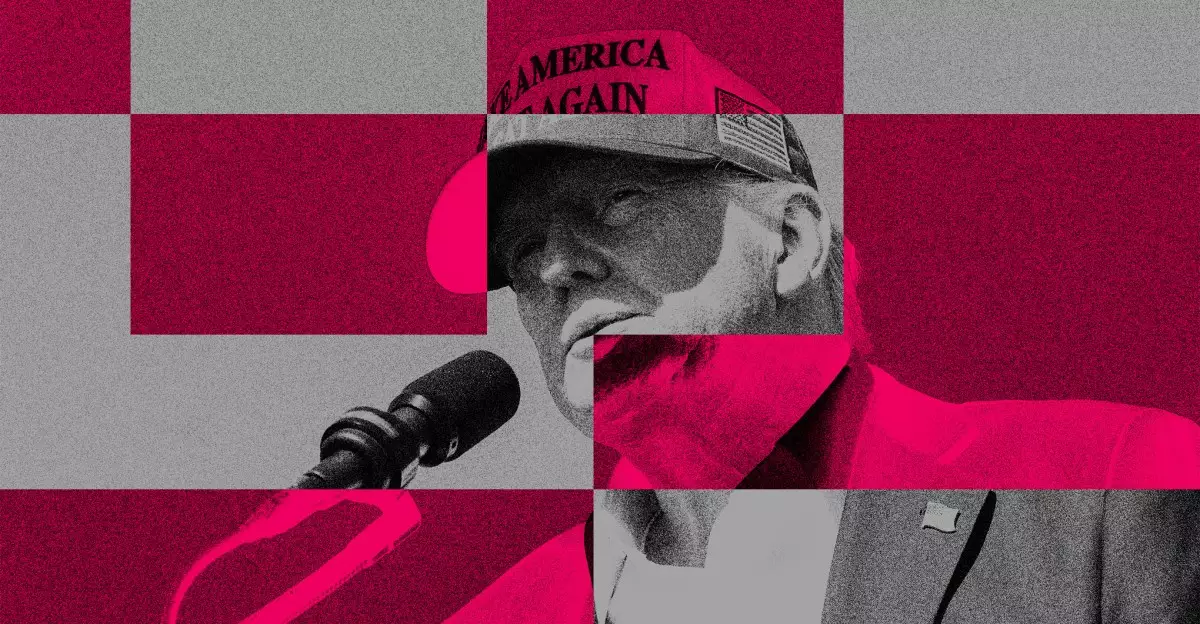Recent developments reveal a deeply paradoxical stance within the Trump administration regarding TikTok. Despite years of vocal threats to ban the app over national security concerns, the administration’s decision to establish a new official TikTok account signals a nuanced, perhaps even duplicitous, approach. On the surface, this move appears to be a simple public relations tactic, a way to showcase presidential achievements or engage with younger voters. Yet, beneath this veneer lies a more calculated attempt to wield influence over a platform that has become a political battleground. Trump’s administration, notably inconsistent in its messaging, reveals a complex relationship with TikTok—one that oscillates between hostility and strategic utilization. This contradiction underscores a broader pattern in modern politics: the blending of rhetoric and reality, where the perceived threat of a social media app doesn’t deter engagement but instead prompts new kinds of strategic maneuvers.
Manipulation of Public Perception and Power Dynamics
Launching a political account during a highly contentious debate about TikTok’s legality and security implications can be viewed as an act of ideological dissonance. On the one hand, Trump vilifies the app as a Chinese espionage tool—an accusation rooted in national security concerns rather than mere suspicion. On the other, his administration’s creation of a White House TikTok account, boasting patriotic content and celebrations of his accomplishments, signals an acceptance, or perhaps an exploitation, of the platform’s reach. This move is not accidental; it’s a calculated display of influence, harnessing TikTok’s massive user base to reinforce political narratives and rally supporters. By doing so, Trump’s team leverages platform algorithms, which prioritize viral content, to extend their reach—effectively turning a tool of foreign influence into an extension of his political machinery.
Furthermore, this strategy exposes how political figures are adept at repurposing social media trends to their advantage. Trump’s personal success on TikTok, where his campaign amassed billions of views, underscores how vital digital virality has become in modern campaigning—a domain historically dominated by traditional media and ground campaigns. By establishing a foothold on TikTok now, the Trump administration is not just playing defense but actively converting adversarial narratives into opportunities for influence, demonstrating a sophisticated understanding of social media’s power, even if the legal or ethical implications remain murky.
Questioning Legitimacy and the Future of Tech-Politics Interplay
The broader question remains: what does this say about the legitimacy of bans on social media platforms? Historically, governments have used bans as tools of censorship or protection, but in Trump’s case, the move appears as much about control as about optics. The US government’s reluctance or inability to enforce the ban, coupled with its strategic presence on TikTok, raises critical concerns about the effectiveness and transparency of such policies. Is this a genuine effort to protect national security, or is it a tactical distraction from broader geopolitical tensions and trade disputes?
It’s clear that the administration’s actions are more about maintaining influence and shaping narratives than about safeguarding the public interest. The fact that Trump’s campaign continues to dominate TikTok with raw, engaging content demonstrates political savvy—an acknowledgement that social media is no longer optional but essential in shaping voter perceptions in the digital age. This evolution signifies a shift in power dynamics, where control over social media narratives can be as influential as traditional political discourse.
Crucially, Trump’s conflicting stance reveals the inherent contradictions in digital policymaking. While ideologically opposed to what TikTok represents—foreign influence and surveillance—his team harnesses its virality to amplify their messages. This duality exposes a broader reality: in the era of information warfare, control over digital platforms is fluid, often blending opposition with opportunism. As future administrations grapple with regulation, engagement, and influence, the lines between opposition and utilization will likely blur even further. The Trump administration’s TikTok strategy exemplifies this new paradigm, one where authenticity and betrayal are merely different sides of the same coin.

